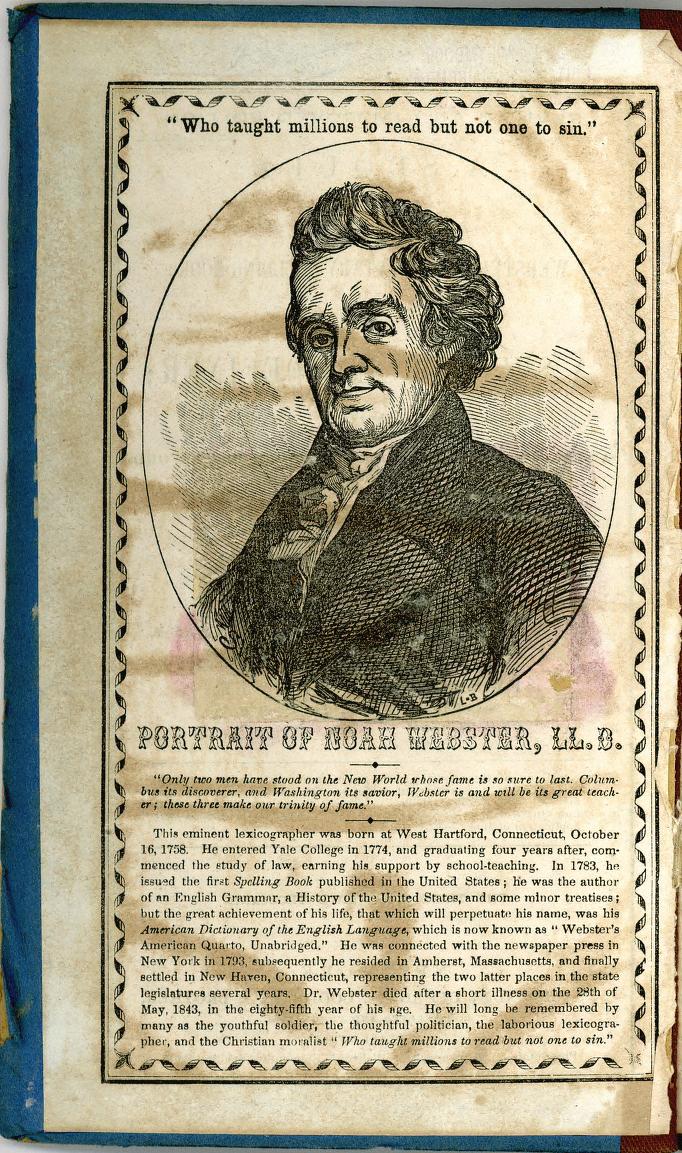




Advanced Search
| Online Collection |
|
||||||||||||||||||||||
|
Early English dictionaries contained archaic spellings and provided definitions for rarely used words. At the same time, compilers generally omitted slang and other words they considered too common to include in a dictionary. In contrast, Noah Webster (1758-1843) included simplified spellings and definitions of commonly used words in his new American dictionaries. For example, Webster encouraged Americans to substitute "music" for the traditional "musick." Similarly, "plough" became "plow" and "honour" became "honor." (Not all Americans approved of Webster's innovations, and not all of Webster's spellings caught on. We still use "tongue" rather the simplified "tung" he urged Americans to use.) William G. Webster (1805-1869) published this sequel to his father's famous introductory speller in 1845. Like his father, William urged Americans to adopt simplified spelling and offered a dictionary of the words most commonly used in daily writing and conversation. And, like Noah before him, William reminded readers of the importance of education in sustaining a free government and people. The accompanying illustration of "Ignorance fleeing before the Light of Knowledge" was a popular theme in this period.
|
"A Sequel to Webster's Elem. Spelling Book: or A Speller & Definer"
|
| |
Home | Online Collection | Things
To Do | Turns
Exhibit | Classroom | Chronologies | My
Collection
About This Site | Site Index | Site Search | Feedback


